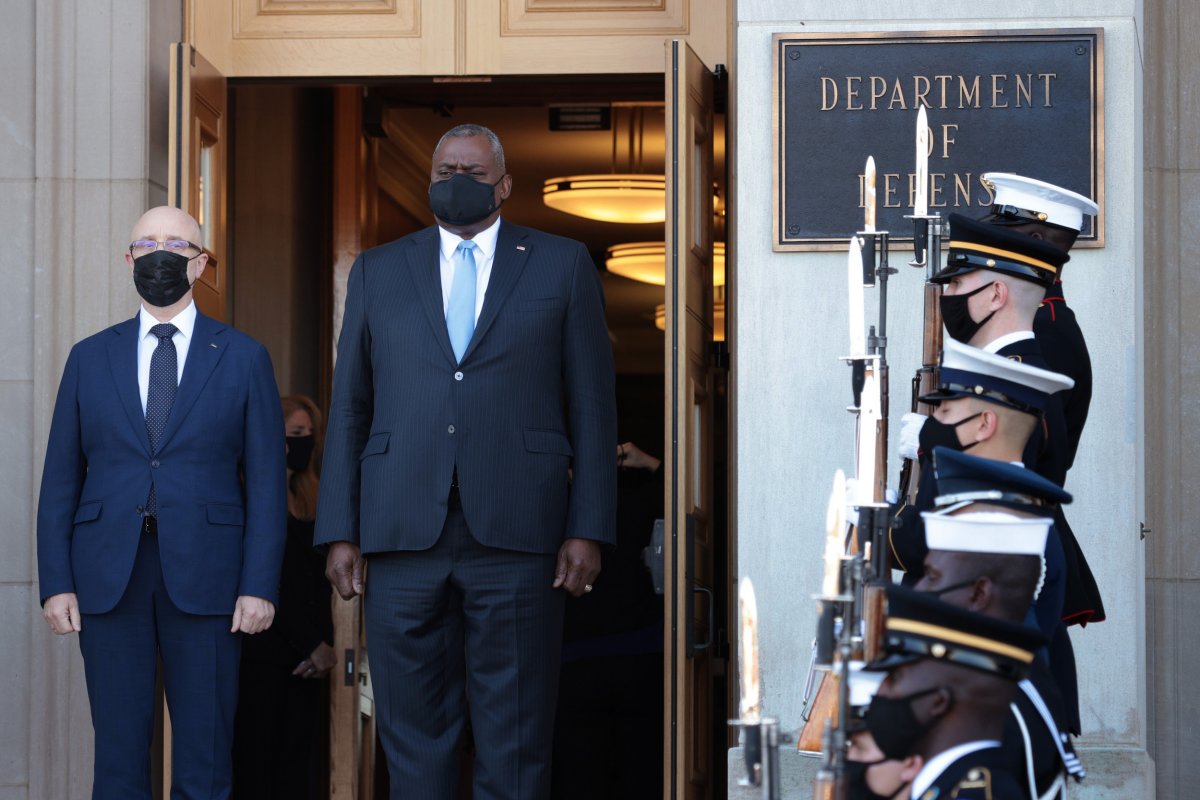A Pentagon study prompted by Defense Secretary Lloyd Austin in March concluded recently, with the Pentagon announcing Monday no major changes are needed in the positioning of U.S. military forces around the globe, according to The Associated Press.
However, officials said Monday they would continue to analyze forces needed in the Middle East, along with adjusting forces in Asia and across the Pacific.
The study comes after the U.S. withdrawal from Afghanistan in August, as the Biden administration faces complex concerns about China's influence in the Asia-Pacific region, as well as Russia's actions in Europe, especially concerning Ukraine.
The study is the first of multiple planned assessments of the administration's defense priorities and the policies surrounding them. The planned studies include a review of the current nuclear forces and a review of the policies that go along with their potential use, set to be finished early in 2022.
The Pentagon is reportedly also working on revisions to the National Defense Strategy, the framework for the administration's defense policies including the role of nuclear weapons, modernizing the nation's armed forces, cyber threats and international alliances.
In September, the U.S. announced a partnership with Britain and Australia to improve coordination of their defense, security and diplomatic efforts in the Asia-Pacific region, along with Australia acquiring nuclear-powered submarines from the U.S. and Britain, a move seen by many as one made with China specifically in mind.
An official who spoke anonymously to reporters including the AP before the report's release said multiple other adjustments to placement of forces in the Asia-Pacific region are being worked on, but require further conversations and approval with foreign governments.
For more reporting from The Associated Press, see below.

Iran presents a further challenge, including in Iraq and Syria, which makes it difficult to allocate more U.S. forces to other parts of the world.
With China in mind, the Pentagon plans to make infrastructure improvements in some parts of the Pacific, including in Guam. The U.S. is also set to increase rotational force deployments to Australia.
The Austin study, known as the Global Posture Review, has set the stage for adjustments to U.S. force positioning in the coming two to three years, according to a senior defense official who briefed reporters on the outcome.
In April, Austin announced plans to expand the U.S. military presence in Germany by 500 troops and a halt to planning for large-scale troops cuts that had been ordered by the Trump administration. At the time of Austin's announcement, U.S. and European officials were expressing concern about a buildup of Russian forces near Ukraine's border. That crisis abated, but in recent weeks it has returned amid worry that Moscow might be planning a military incursion into Ukraine.

Uncommon Knowledge
Newsweek is committed to challenging conventional wisdom and finding connections in the search for common ground.
Newsweek is committed to challenging conventional wisdom and finding connections in the search for common ground.
About the writer
A 2020 graduate of Kent State University with a Bachelor's degree in Journalism, Aaron has worked as an assigning editor ... Read more
To read how Newsweek uses AI as a newsroom tool, Click here.








